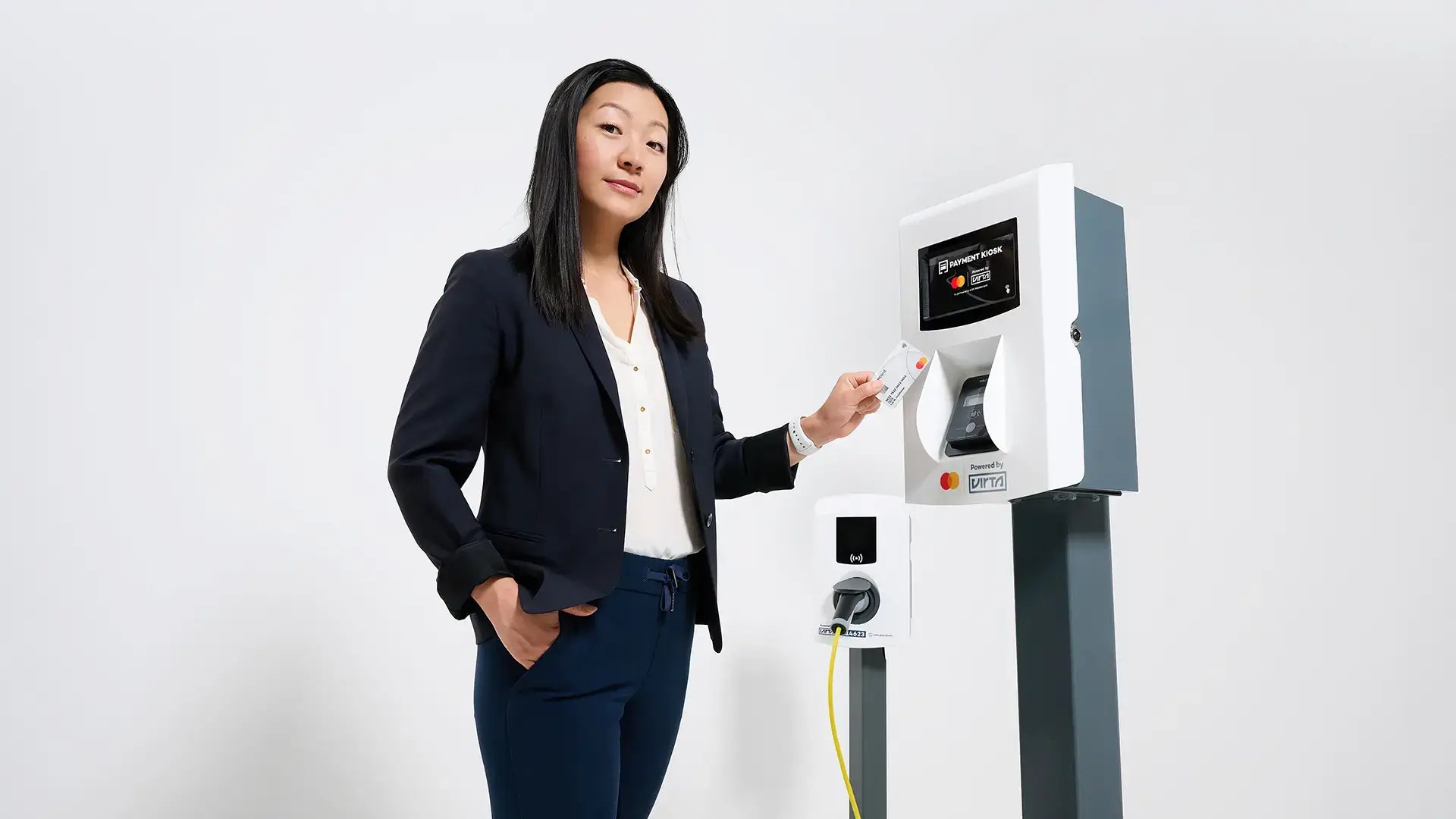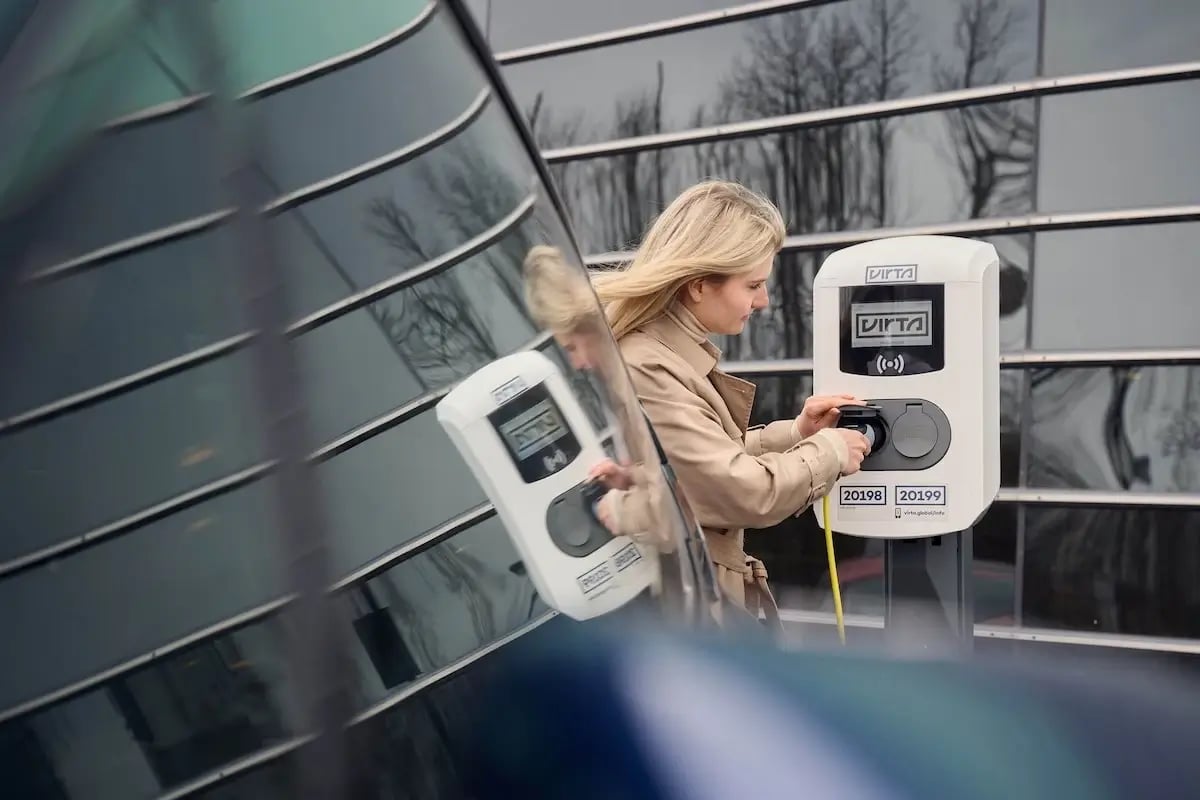UK’s Public Charge Point Regulations 2023: What you need to know
Nowadays, doubts and anxiety about the reliability of the public charging infrastructure are one of the main reasons preventing drivers from switching to electric.
As electric mobility becomes widespread, new legislation and regulations must be implemented to ensure smooth EV charging experiences for all EV drivers. EV driver satisfaction translates into higher EV sales and keeps the rise of e-mobility going.
In the UK, the government published new regulations for public charging points to enhance charging experiences for EV drivers nationwide. The regulations target the reliability of the chargers, simple payment options, open data and more transparent pricing among other aspects.
What does it mean for you, the charging point operator (CPO)? Let’s dive into the new ev charging regulations of 2023 and how they affect your EV charging business.
1. Enabling contactless payments
Public charging point operators (CPO) must ensure that all new public chargers of 8 kW or above have the ability of a contactless payment. This requirement also affects existing public ultra fast charging points that were in operation before this regulation comes into force and any existing charging points that become available to the public.
Being able to pay with a debit or credit card is a familiar and preferred way of payment for many EV drivers. At Virta, we developed a stand-alone payment solution, the Virta Payment Kiosk, to specifically answer this need.
The Virta Payment Kiosk works just like a payment terminal at a classic petrol station and can easily process card payments from up to 100 charging points at one location.

More on the Virta Payment Kiosk here
2. Payment roaming fosters simplicity
To continue enhancing the accessibility of public EV charging, another regulation focuses on payment roaming. A CPO must ensure that a person using their charging points can pay to charge an EV using a payment service provided by a third-party roaming provider. Essentially, payment roaming allows the EV driver to pay for the charging session with a single mobile app or an RFID tag across multiple charging networks. There’s no need to create separate accounts with each charging point operator to be able to pay for public charging events.
3. Enhancing pricing transparency
If you’re buying a service, you naturally want to know how much you’re going to pay from the get-go and want to make sure the price doesn’t change in the process. The same goes for EV charging.
That’s why this regulation mandates that the total price for charging must be displayed in pence per kilowatt-hour either on the charge point or on a separate device such as a mobile app or a one-time-payment website, given that the EV driver doesn’t need to sign up for the CPOs charging service.
At the same time, the CPO must ensure the total price displayed does not change once the EV starts charging.
4. Ensuring reliable EV charging points
Public charging points must be reliable to foster trust and guarantee EV drivers’ peace of mind. The reliability requirement states that the CPO’s network of fast and ultra fast charging points achieves 99% reliability each calendar year.
The abovementioned requirement will ensure that EV drivers don’t arrive at a faulty public EV charging point, which will lessen the common hesitation of buying an EV.

If a public charging point can be accessed during specific hours, its reliability will be assessed during those hours only. The CPO must also inform about its compliance with this requirement on its website.
At Virta, we record over 99% uptime on chargers connected to our back-end system, the Virta Platform, thanks to extensive internal testing and constant product updates.
5. EV driver helpline around-the-clock
In the case of an issue, EV drivers must be able to contact customer support around-the-clock. A CPO must provide a staffed telephone helpline free of charge 24/7, 365 days a year. The details of this customer helpline must be displayed at the charging site, on or near the charging point, for easy access.
At Virta, we know that around-the-clock customer support assures EV drivers that they can get help quickly and efficiently if something were to go wrong. A 24/7 helpline for our customers is a standard feature of our charging solution.
6. Open public charging point data
Transparency is crucial in providing the best charging experiences for EV drivers. That’s why the regulations require CPOs to hold and deliver accurate reference and availability data.
- Reference data: Information on the charging point’s location, type of connector available, payment methods available and pricing.
- Availability data: Information on whether the charging point is working or out of order.
Thanks to this requirement, EV drivers should be able to easily access up-to-date information about charging points in their area and have an easier time charging.

7. Obligatory reporting
According to the regulations, a CPO must submit annual reports about its network of fast or ultra fast charging points to the Secretary of State. The report must detail the number of charging points in operation and their reliability.
At Virta, we provide you with comprehensive reports, including the total number of charge points in operation and their reliability status over the year. Our user-friendly, intuitive reporting system ensures that you stay informed and always have access to critical performance data.
Let us help you comply with the Public Charging Point Regulations
At Virta, we’re committed to helping our customers provide their EV drivers with the best EV charging experiences. With our charging solutions, you ensure you comply with the new EV charging regulations 2023 and your EV drivers experience seamless and hassle-free charging.
Let’s talk about how we can best support your EV charging needs!
New content alerts
You may also like
These related stories
/dedicated-ev-parking-spots-charging-station.webp?width=1920&height=1080&name=dedicated-ev-parking-spots-charging-station.webp)
Don't park on EV spots, unless you charge
/virta-electric-vehicle-v2g-charger-display.webp?width=1920&height=1080&name=virta-electric-vehicle-v2g-charger-display.webp)
Public bidirectional EV charging point installed to Finland
/eco-friendly-vehicle-charging-parking-garage-beside-an-ac-charging-station.webp?width=1920&height=1080&name=eco-friendly-vehicle-charging-parking-garage-beside-an-ac-charging-station.webp)
EV charging 101: Let's charge

